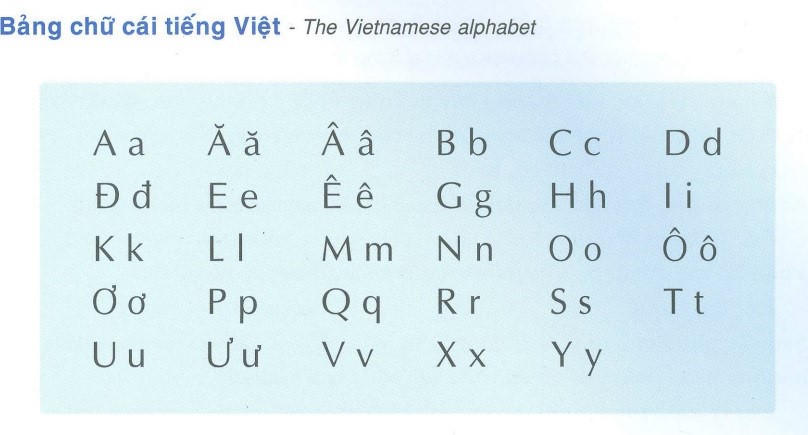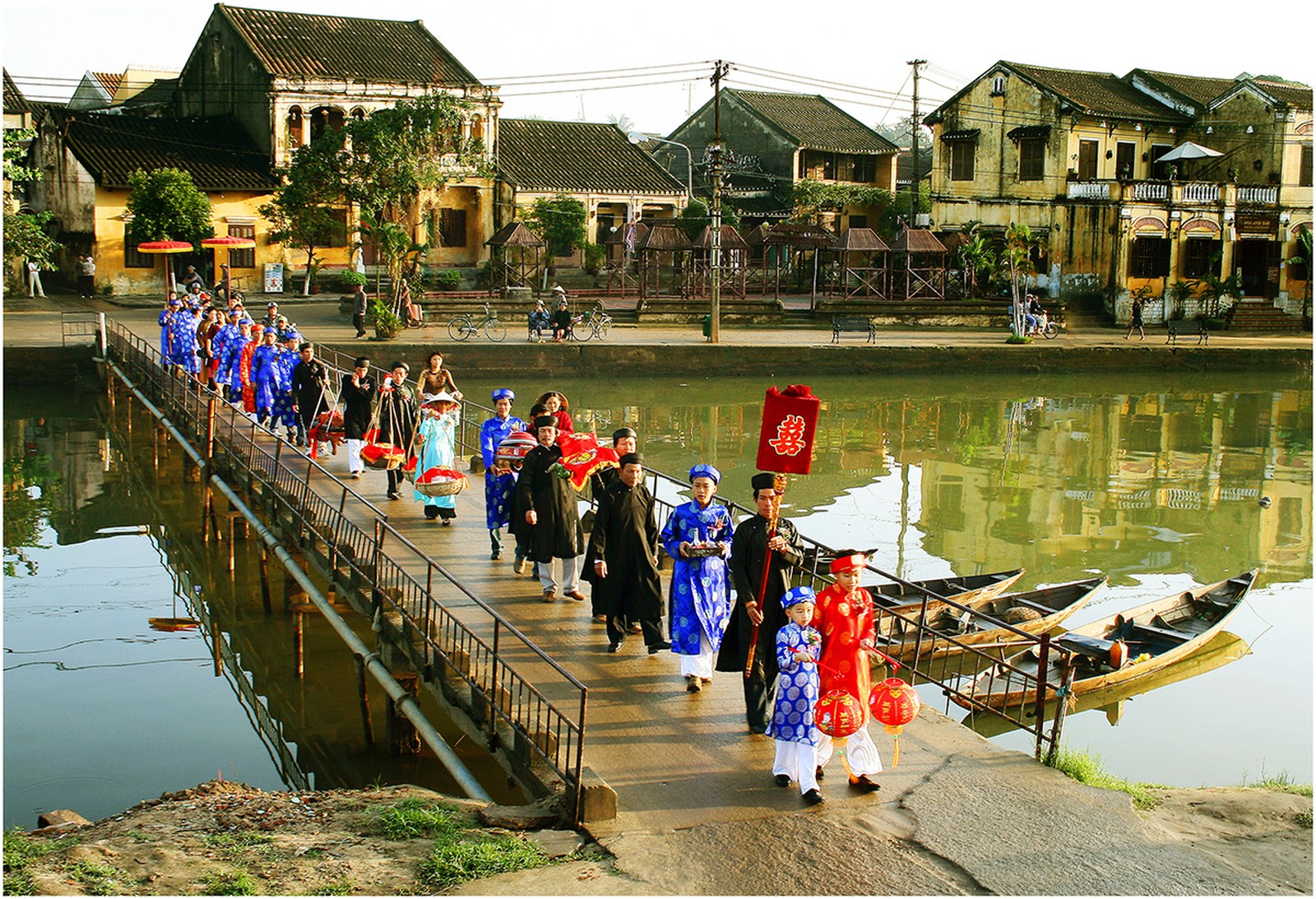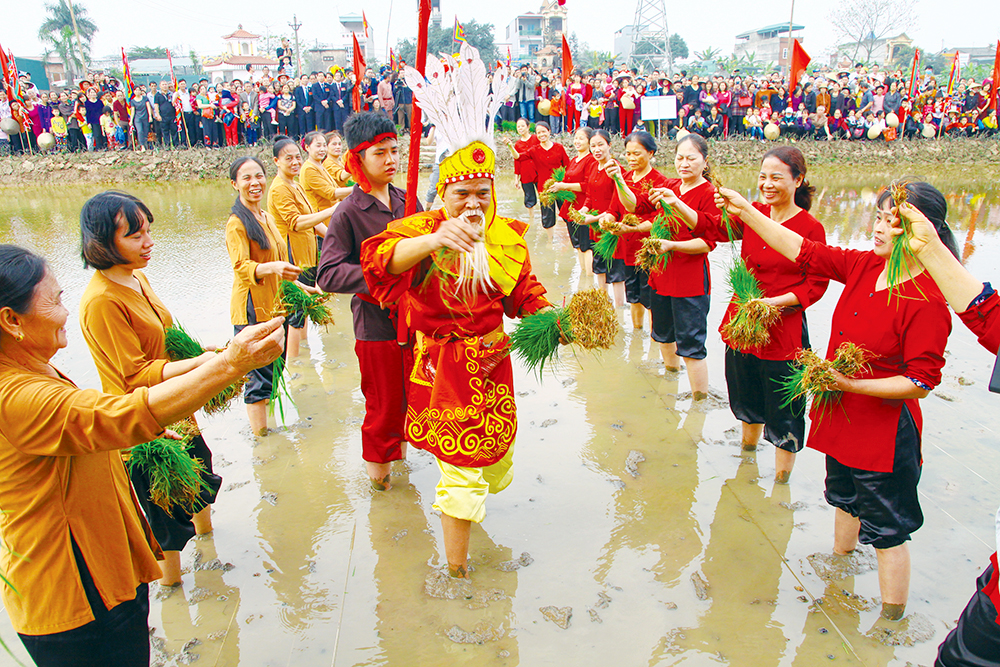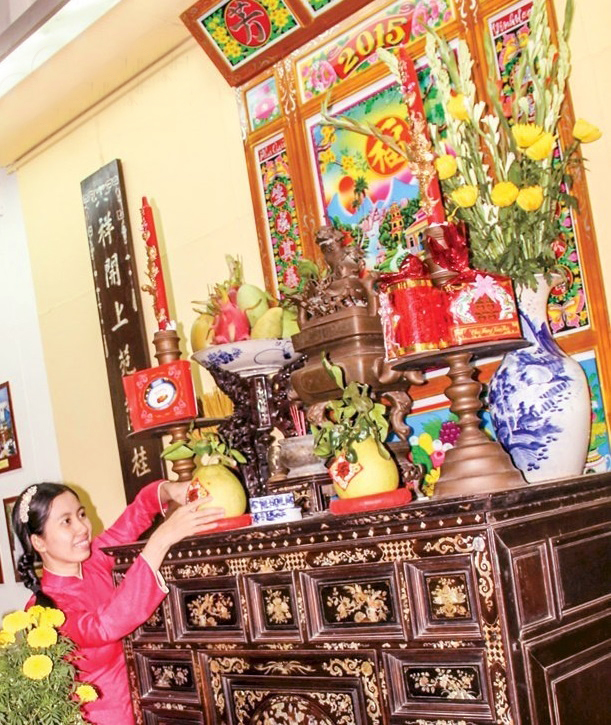
Bản đồ các tỉnh thành ở Việt Nam (Nguồn: www.dulichvietnam.com.vn)
II. POPULATION, ETHNICITY
According to the census results in 2020, Vietnam’s population is estimated at 97.58 million people, of which the male population is 48.59 million people, accounting for 49.8%; female population 48.99 million, accounting for 50.2%. (Source: GSO)
Vietnam has 54 ethnic groups. In which, the Vietnamese ethnic group (the Kinh) makes up the majority. Living together for a long time in the land of Vietnam, ethnic groups have traditionally united to help each other in the process of conquering nature, building and developing the country.
The process of cultural exchange and acculturation between ethnic groups takes place strongly. However, each ethnic group still retains their own unique features and cultural identity.

54 Dân tộc Việt Nam
(Nguồn: www.vnphoto.net)
III. LANGUAGE, WRITING
Ethnic groups in Vietnam have their own languages and scripts. Among the languages in Vietnam, Vietnamese is the most commonly used and becomes the official language in Vietnam.
During the Northern domination period, Vietnam used Chinese characters in transactions, education, and administrative documents. In addition to Chinese characters, the Vietnamese also invented the Nom script (using the hieroglyphic properties of Chinese characters to sign Vietnamese sounds). After that, National Language script (Vietnamese) appeared, gradually replacing Chinese and Nom characters.

Bảng chữ cái tiếng Việt (Nguồn: VSL1, Nguyễn Văn Huệ)
IV. CUSTOMS AND HABITS
The customs of marriage, funerals, holidays, and festivals of Vietnam are all associated with the village community. Traditional marriage is not only the needs of the couple but also must meet the requirements of the family, clan and village. Therefore, choosing the perfect one is very crucial and the couple have to choose auspicious days and having to go through many complicated ritual procedures. Funerals are also held very respectfully, showing compassion to send loved ones to the afterlife. Funerals are not only handled by the family, but also by neighbors who are dedicated to helping.

Vietnam is a country of festivals all year round, especially in spring and at leisure time. The main festivals are Lunar New Year, Dragon Boat Festival, and Mid-Autumn Festival. Each region often has its own festivals. The festivals are often related to agriculture such as praying for rain, going to the fields, celebrating harvest festival… The festivals are also related to professions such as bronze casting, blacksmithing, boat races. In addition, there are festivals commemorating the ancestors, national heroes and some also related to religious beliefs.

Tái hiện lễ hội Tịch điền của vua Hùng (Nguồn: https://dangcongsan.vn)
V. RELIGIOUS BELIEFS
In the spiritual life of Vietnamese people, many different forms of belief exist. Vietnamese have the custom of worshiping ancestors, worshiping the tuterlary deities, worshiping gods, worshiping national heroes, especially Mother Goddess (or Mẹ in Vietnamese). Mother Goddess worship originates from the ancient custom of worshiping goddesses such as God of the mountain, God of the forest, God of the earth, and God of water.

Bàn thờ tổ tiên truyền thống ở Nam bộ (Nguồn: https://baocantho.com.vn)
Buddhism was introduced to Vietnam in the 2nd century. By the Ly Dynasty (11th century), Buddhism was at its peak and was considered as the orthodox ideology. Buddhism is widely spread among the people and is influential profoundly to social life, leaving many imprints in the field of culture and architecture.
Christianity was introduced to Vietnam in the 17th century. Nowadays, the places where many Christians in Vietnam concentrated are Bui Chu – Phat Diem (Ninh Binh province) and Ho Nai – Bien Hoa (Dong Nai province).
Protestantism was introduced to Vietnam in 1911. Currently, Protestants are concentrated mainly in the Central Highlands.
Islam was introduced to Vietnam in the 10th century. Muslim followers are mainly Cham people in the Central region and some provinces in the South such as Tay Ninh and An Giang.
Vietnamese people also form their own religions such as Cao Dai, Hoa Hao, etc.

Lễ hội đạo Cao Đài ở Tây Ninh (Nguồn: http://dulichvietnam.org.vn)
Hanita (tổng hợp)





